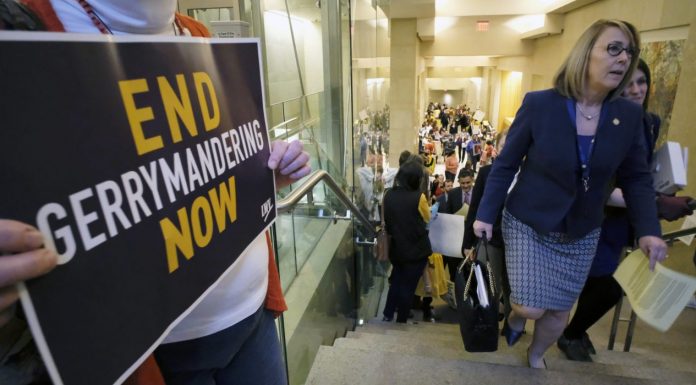() The Virginia Supreme Court appointed two special masters to redraw the state’s Congressional and state legislative maps with unanimous support from the justices.
This is the first time that the redistricting process will be done by a bipartisan committee overseen by the court after having long been overseen by the General Assembly.
The change garnered some controversy—and a bit of poetic justice—after Democrats who had pushed for reform under years of Republican control suddenly felt more conflicted upon gaining control of the legislature in 2019.
They joined GOP lawmakers, nonetheless, to approve the measure in the current session, potentially avoiding the aggravations of “sue till blue” activist groups like Eric Holder‘s National Democratic Redistricting Committee, which forced a redraw of the 2011 maps in a battle that went all the way to the Supreme Court only to be shot down for lack of standing.
Republicans are now favored to retake the House of Delegates following the state’s Nov. 2 election, making Democrats’ stint in control short-lived, but their redistricting reforms may remain an enduring legacy.
Republican and Democratic legislative leadership provided the justices with a list of nominees who they recommended to draw the maps. One of the map drawers was chosen from the Republican list and the other from the Democratic list to try to prevent the maps from favoring one party over the other.
Sean P. Trende, chosen from the Republican list, is an election analyst with RealClearPolitics and a nonresident fellow with the right-leaning American Enterprise Institute.
Bernard N. Grofman, chosen from the Democratic list, is a political science professor at the University of California, Irvine and has published works on voting rights and civil rights. He was a special master in the 2015 Congressional redistricting in Virginia.
Although the two men were chosen from partisan lists, the court ordered them to be neutral in their decisions. The special masters are prohibited from consulting political parties, partisan groups or any entity other than their support staff when creating the maps.
“Though each was nominated by legislative leaders of a particular political party, the nominees—upon being appointed by this Court as Special Masters—shall serve as officers of the Court in a quasi-judicial capacity,” the justices wrote. “Consequently, the Special Masters shall be neutral and shall not act as advocates or representatives of any political party.”
The court requested the map drawers to submit one proposal for a Congressional map, a House of Delegates map and a Senate map as soon as possible, but in no longer than 30 days. The maps must comply with state and federal law.
House Republican leadership declined to comment on the court’s choices and The Center Square could not reach House Democratic leadership or Republican and Democratic Senate leadership for comment.
Virginia voters approved a referendum last year that established a bipartisan redistricting commission to redraw maps, rather than keeping that authority in the state legislature. The commission was meant to prevent partisanship, but almost every vote to establish new maps failed along party lines. Under the rules of the referendum, the commission’s failure to submit maps requires the court to appoint special masters to handle the map drawing.
Headline USA’s Ben Sellers contributed to this report.

